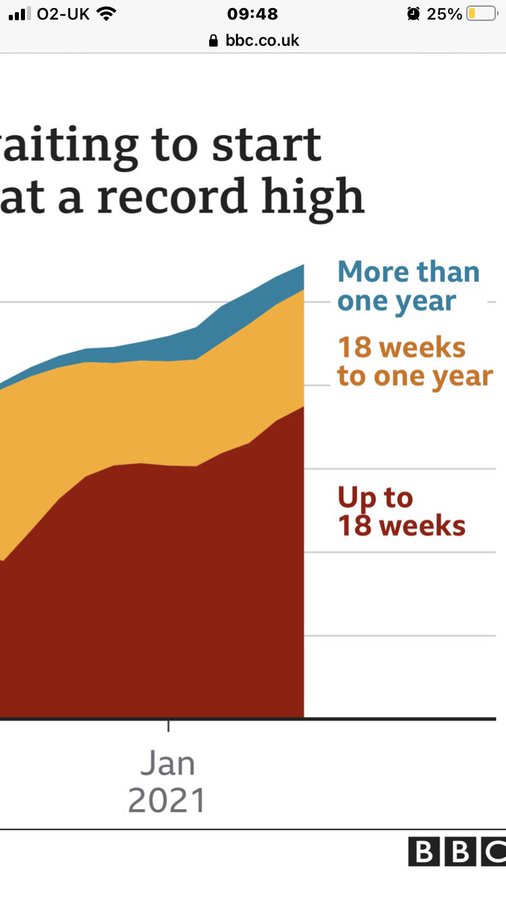
The Bottom Line: Covid in New Zealand
As New Zealand move from elimination to a suppression strategy, how have they have faired and what may the future look like?
🧵
@DrGregorSmith @trishgreenhalgh @chrischirp @CMO_England @NicolaSturgeon @JeremyFarrar @devisridhar @dgurdasani1
As New Zealand move from elimination to a suppression strategy, how have they have faired and what may the future look like?
🧵
@DrGregorSmith @trishgreenhalgh @chrischirp @CMO_England @NicolaSturgeon @JeremyFarrar @devisridhar @dgurdasani1
There is little doubt NZ have done very well with the pandemic. They relied on infection screening and quarantining at all borders, thorough and rapid contact, trace and isolation, and have also relied on early and often local restrictions to contain outbreaks.
Result:
Result:

The early response and more thorougher containment measures led to much shorter lockdowns and much more time living freely...
NZ - 71 days in lockdown
UK - 271 days in lockdown
NZ - 71 days in lockdown
UK - 271 days in lockdown
The lives saved have been enormous.
They have continued the expected trend of wealthy countries and reduced excess deaths.
They have continued the expected trend of wealthy countries and reduced excess deaths.

As expected, the benefits of very low cases, deaths and a lack of restrictions has meant very little impact on healthcare services and good economic performance.
NZ economy [OCED 2022]:
"The New Zealand economy recovered quickly from the COVID-19 shock thanks to effective virus containment, measures to protect jobs and incomes and highly expansionary macroeconomic policies but is now overheating and house prices have soared."
"The New Zealand economy recovered quickly from the COVID-19 shock thanks to effective virus containment, measures to protect jobs and incomes and highly expansionary macroeconomic policies but is now overheating and house prices have soared."
▪️"Swift economic recovery..."
▪️"fiscal deficit to be cleared by 2023"
▪️"unemployment at 10-yr low"
▪️"housing market prices now a problem"
oecd.org/economy/new-ze…
▪️"fiscal deficit to be cleared by 2023"
▪️"unemployment at 10-yr low"
▪️"housing market prices now a problem"
oecd.org/economy/new-ze…
So now New Zealand have weathered the first two years of the pandemic with:
- Much less death and disability
- Greater freedoms
- Better economic recovery...
what are they now facing...
- Much less death and disability
- Greater freedoms
- Better economic recovery...
what are they now facing...
Effective, tried and tested public health measures:
- Excellent testing system
- World beating Contact and Trace system
- Established and supported Isolation protocols
- Excellent testing system
- World beating Contact and Trace system
- Established and supported Isolation protocols
And lots of evidenced-based weapons to fight Covid:
- Dexamethasone
- Other anti-inflammatories
- Monoclonal antibodies
- Anti-virals
- Anti-coagulation protocols
- Community management protocols
- Optimised respiratory support protocols
- Dexamethasone
- Other anti-inflammatories
- Monoclonal antibodies
- Anti-virals
- Anti-coagulation protocols
- Community management protocols
- Optimised respiratory support protocols
They have had time to strengthen their health system and apply the WHO guidelines for case management:
"Refer all patients and staff who exhibit symptoms for assessment and testing."
health.govt.nz/system/files/d…
"Refer all patients and staff who exhibit symptoms for assessment and testing."
health.govt.nz/system/files/d…
And they may even be able to achieve their goal of:
"Continue to deliver usual services."
"Continue to deliver usual services."
Challenges (except for all the new variants we keep sending them!):
Low hospital bed capacity of New Zealand may prove the greatest challenge moving forward.
But Home monitoring networks, early intervention, and controlling cases will be helpful to mitigate this.
Low hospital bed capacity of New Zealand may prove the greatest challenge moving forward.
But Home monitoring networks, early intervention, and controlling cases will be helpful to mitigate this.
They have also managed to train additional ICU staff and source ventilators.
But lack of healthcare capacity, IMV, remains their greatest Achilles heel if they are to achieve low case fatality rates and their stated goals:
But lack of healthcare capacity, IMV, remains their greatest Achilles heel if they are to achieve low case fatality rates and their stated goals:
"Keeping the number of people who get COVID-19 as low as possible.
Meeting the health and social needs of people with COVID-19 ....
Keeping health system capacity available to manage acute and planned care."
END.
Meeting the health and social needs of people with COVID-19 ....
Keeping health system capacity available to manage acute and planned care."
END.
The Bottom Line:
New Zealand responded robustly to protect life and livelihood. By doing so they maintained social freedoms.
They now face community transmission in a far, far better position. Vaccines, treatments and a less deadly (than Delta) variant.
New Zealand responded robustly to protect life and livelihood. By doing so they maintained social freedoms.
They now face community transmission in a far, far better position. Vaccines, treatments and a less deadly (than Delta) variant.
• • •
Missing some Tweet in this thread? You can try to
force a refresh








